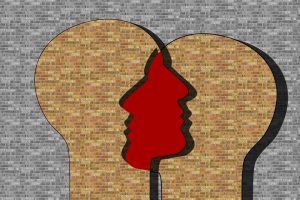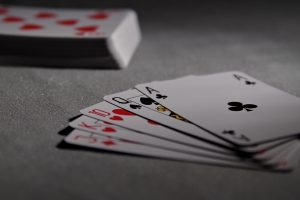 The dark side of the ego appears when the ego is offended – of course, this first manifests in losing. If a poker player has a strong attachment to their ego, they may react violently or even aggressively to a situation where they have fewer skills than they think. They may tilt, experience an outburst of anger, or make inappropriate decisions. Moreover, the ego often clouds our efforts to properly analyze ourselves. If you have an uncontrollable ego, you will often think you are better than you actually are, so you will play in poor matches more often, fail to recognize your own weaknesses, not leave matches at the right time, and be unwilling to admit that you are a weaker player, etc. The ego causes most players to simply waste money in the long run.
The dark side of the ego appears when the ego is offended – of course, this first manifests in losing. If a poker player has a strong attachment to their ego, they may react violently or even aggressively to a situation where they have fewer skills than they think. They may tilt, experience an outburst of anger, or make inappropriate decisions. Moreover, the ego often clouds our efforts to properly analyze ourselves. If you have an uncontrollable ego, you will often think you are better than you actually are, so you will play in poor matches more often, fail to recognize your own weaknesses, not leave matches at the right time, and be unwilling to admit that you are a weaker player, etc. The ego causes most players to simply waste money in the long run.
So, the ego has both its pros and cons, but we cannot do without it. It is too important for poker. Although an uncontrolled ego can be harmful, at its best, it can be a powerful force that helps us achieve more. Let's not reject the ego; let's simply tame it.
I have always thought that self-observation is the single most important skill for a poker player. Observing yourself is something like saying to yourself: “This is who I am. Here I need to improve, and here I am doing great. This is what beats me. I can also be wrong in thinking this.” When you play poker, the most powerful thought you can have is: “This guy can beat me.” No matter how bad a player he is, or how wrongly you think he understands certain concepts, or how badly he played the last hand, you must always be prepared that in this match, here and now, you are losing.
Notice the words “lose” or “beat” are used instead of “being worse.” It would be unproductive to talk most of the time about “being worse” except in cases where there is a drastic skill difference because skill in poker is not linear. You can have a positive win rate against 3-4 strong regs at your limits but lose to the worst reg just because something in his game exploits you and you simply do not adapt properly. Do not think of skill as linear, not only because it is not, but also because such a thought creates unnecessary tension for your ego. Instead, try to tame your ego. If you are losing to someone, it is not necessarily because “you are a bad player.” It is because your playing style simply has a negative win rate against that person's playing style, so you need to do your homework and analyze the match. But the fact that this player beats you should not be integrated into your ego. It is not a fact about you. It is just that your game now responds to his game in this way.
This is a very important point, so I will repeat it: you must always acknowledge the possibility that you have a negative win rate. Then you must be able to leave the match without losing self-respect. And after you leave, you may not even be sure if you were really losing – that's okay. When you step away from the game, your ego will burn, pushing you to improve, figure out what you did wrong, and strengthen your weaknesses so that when you return to the table with the same player, you are ready to step up.
And still, many may think that the ego is a bad thing. Of course, perhaps every player needs a different amount of ego while playing. But without it, no one would be interested in overcoming the initial plateaus to become a serious poker player. However, once you find a foothold, once you start climbing the mountain, what good is the ego? Maybe it should disappear?
Do not misunderstand, I am not claiming that the ego is necessary everywhere and always or that selfishness is the highest value we can strive for. However, there are two ego qualities that we need to untangle. One is ego motivation, as a driving force to become better, to rise higher, and to be more respected. The second is ego as a personality trait of narcissism and self-centeredness. Of course, the latter quality is undesirable. These two qualities may correlate with each other, but they are not the same. Although ultimately, the struggle for fame is, in fact, inseparable from the ego.
So, yes, let's allow ourselves to be good people. Let's allow ourselves to be sincere, let's allow ourselves to be  genuine, let's care for those around us. But that does not mean we have to destroy our ego; instead, let's allow ourselves to share a different kind of ego. A self-sacrificing ego.
genuine, let's care for those around us. But that does not mean we have to destroy our ego; instead, let's allow ourselves to share a different kind of ego. A self-sacrificing ego.
To become a great poker player, you need inspiration. You have to push yourself through the darkest depths. It is not just about the money. No good poker player has become one just for the money. It all depends on you, on your desire to create yourself, and at the same time, it has nothing to do with you. It is just poker, just climbing the mountain, just the mountain. And selfishness and self-sacrifice at the same time.
So accept the ego, take it seriously. Be prepared to lose to others, again and again, throughout your career. No matter how successful you are and no matter how much you want to win, no matter how smart you are, sometimes you will lose, and that's okay. Feel an endless hunger. A hunger to be better, to be the best. Let that burning desire simmer in your belly. It will only do you good. It is the source that gives you energy. It will lead you on the path of improvement, helping you become the poker player you desire to be.





